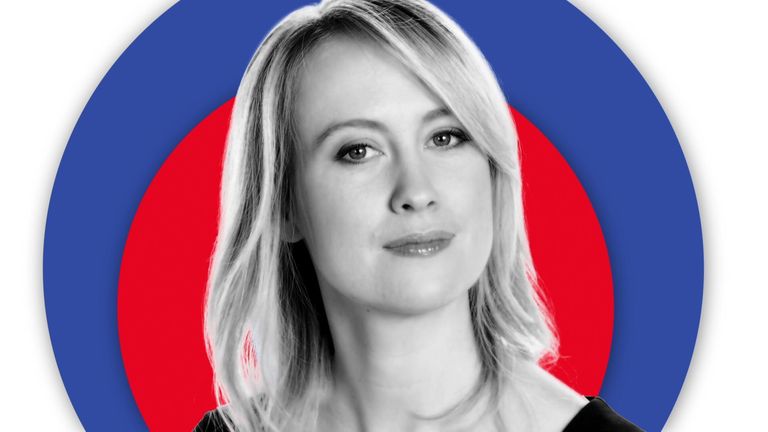The US election is finally over - sort of.
Pending any legal challenges that are extremely unlikely to change the result, that is.
So, with Joe Biden now the president-elect, what are the challenges ahead?
Count the votes? Yes, in principle
For Democrats, the apocalypse has been averted, while Republicans may disagree. In a less than ideal start to the UK government's relationship with Mr Biden, Dominic Raab refused to say unequivocally that all votes should be counted in a democratic election.
Asked directly four times on Sophy Ridge on Sunday, and pressed twice more, the foreign secretary conceded at the third time of asking: "Yes, in principle," but added: "What you are really trying to do, Sophy, is drag me in so that the legal claims about whether or not all the votes have properly been counted - when you look at the mailed votes, the votes in person and the claims that have been made for example about the posted military ballots - so I just don't want to get sucked into that."
Mr Raab also praised Mr Biden for having "won with more votes in history in any election".
And he made sure to give the Democrat's running-mate her full title after it was left out of last night's statement, saying: "We congratulate Vice President-elect Kamala Harris, who will be the first black woman to hold that office - a landmark achievement."
Damage to democracy
Former chancellor and home secretary, Sajid Javid, said Donald Trump has "done a huge amount of damage to democracy both in his own country and abroad" with his "adolescent behaviour".
Mr Javid told Sophy that in calling for the vote count to be stopped, the now one-term president was harming his own nation and others, saying "the US is a beacon of democracy across the world, as we are, and he has done damage, is still doing damage because he hasn't stopped".
:: Subscribe to Sophy Ridge on Sunday on Apple podcasts, Google podcasts, Spotify, Spreaker
Mr Javid is no fan of Mr Trump, having publicly rebuked him in 2017 for retweeting far-right group Britain First. He was later excluded from the banquet welcoming the president's state visit to the UK, something he described as "odd".
The former banker (and member of a Republican club during his time in New York) said he hoped that "serious people around [Trump] will take him aside and tell him to stop and put an end to this".
He was upbeat about the government's chances of getting on with the new president, however, citing climate change and free trade and saying: "I think there's a lot of crossover, a lot of mutual interests, far more than there ever was with a Trump administration."
Speak with one voice
Mr Javid was joined by Labour's Emily Thornberry, who said the UK must speak with "one voice" against Donald Trump's refusal to accept the US election result.
The shadow international trade secretary said: "I don't think anybody can be surprised. I think it's very much the pattern of behaviour that [Trump] indulges in and actually, he has been telling us himself for some time that this is what he was going to do.
"I think what's important is that we all stand united, those of us who are interested in democracy and supporters of Western democracy in particular. To have the sitting president say that the result isn't valid is very damaging indeed and so I think it is very important that we all speak with one voice on this."
World War Three risk
General Sir Nick Carter spoke to Sky's foreign affairs editor Deborah Haynes for the show and said there was a "risk" of a third world war - adding that "we have to remember that history might not repeat itself but it has a rhythm".
He suggested that "with quite a lot of the regional conflicts that are going on at the moment…you could see escalation lead to miscalculation" which could in turn become "full-blown war".
Within the last 10 years, conflicts in Ukraine and Syria and Iraq, as well as the Armenia-Azerbaijan war, have all pulled in or had the potential to pull in larger states on various sides - with Sir Nick saying the UK had to make sure it was "very cautious" about how it managed flashpoints.
All I want for Christmas is a four-nation approach
There may be excitement in America, but over here worries about what coronavirus means for our normal rituals remain.
Wales' First Minister Mark Drakeford told the show: "I think it is really important that we have a four-nation approach to Christmas. So many families in Wales have their friends and other family members in other parts of the United Kingdom and vice-versa.
"We were promised last week by Michael Gove that we will have another four-nation meeting in this coming week so that we can pool ideas, plan together, have a common approach to the Christmas period. I really hope that meeting materialises."
The first part of the first minister's wish seems likely to come true, if Boris Johnson's words on Thursday are to be believed. The prime minister confirmed all four nations are "working together on a joint approach to the Christmas period, because all of us want to ensure families can come together wherever they live".
Mr Drakeford refused to be drawn on what any eventual agreement could look like. Questions over how to cope with students coming home, reuniting families or simply what can be done on Christmas Day, all remain up in the air.


